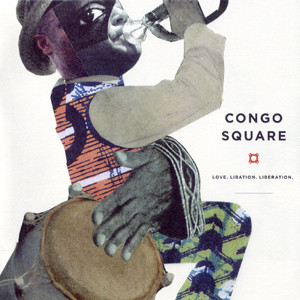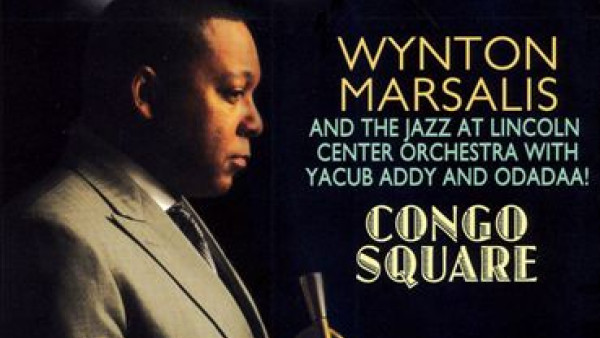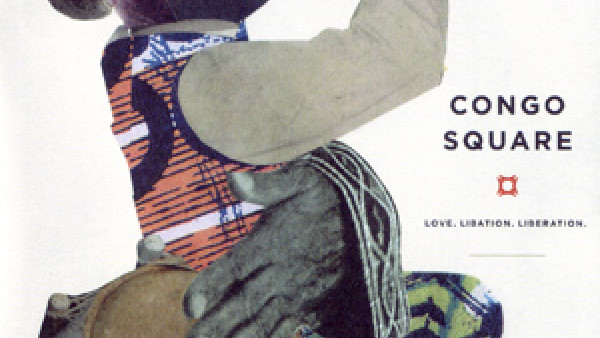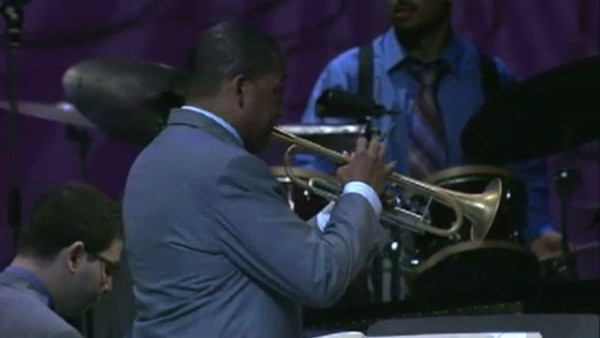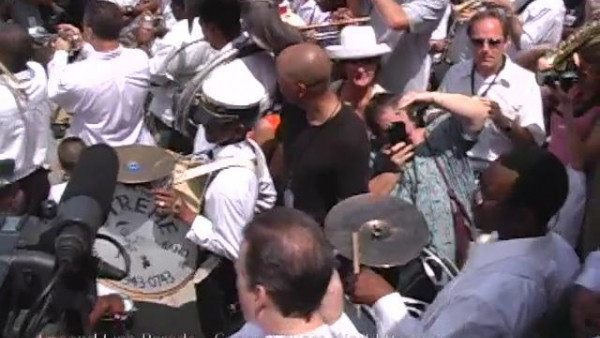‘Congo’ dedicated to New Orleans
Wynton Marsalis has lived in the Big Apple for more than 25 years, but his heart is still in the Big Easy, as befits a New Orleans native whose music is steeped in the rich cultural traditions of his hometown.
“I didn’t have any realization of how unique a place it was until I left when I was 15 to attend a music camp in North Carolina,” said the Pulitzer Prize-winning jazz trumpeter and composer. “After I came back, I understood we were living in a different place from anywhere else in the country.”
Marsalis’ love of his hometown has also been reflected in the titles of some of his albums, most notably “Crescent City Christmas Card,” “Uptown Ruler” and “Levee Low Moan: Soul Gestures in Southern Blue.”
His latest work, “Congo Square,” will receive its world premiere next Sunday in the Congo Square section of Louis Armstrong Park in New Orleans, where tomorrow he launches a week of free concerts, workshops, music clinics and master classes throughout the city.
A national tour will follow by Marsalis and his 17-piece Lincoln Center Jazz Orchestra, which will be joined by expatriate Ghanian percussion master Yacub Addy and his 9-piece band, Odadaa!
Marsalis, 44, and Addy, 75, collaborated on writing “Congo Square.” An extended, percussion-fueled composition that fuses jazz and West African music, it is dedicated to New Orleans. It will be recorded for a new album after the tour (which skips the West Coast) concludes May 6 in New York.
The bespectacled trumpeter enthusiastically discussed his collaboration with Addy during a recent phone interview from New York. The choice of the Hurricane Katrina-ravaged New Orleans to debut the piece is significant, both as the site of the historic Congo Square and because of Marsalis’ ongoing efforts to help rebuild the devastated city, where his parents still live.
Last September, he spearheaded the Higher Ground Hurricane Relief benefit concert at Jazz at Lincoln Center.
It featured performances by such Big Easy music luminaries as Irvin Mayfield, Terence Blanchard, Art and Aaron Neville, and Ellis and Jason Marsalis (Wynton’s piano-playing father and drummer brother, respectively). The Crescent City contingent was joined by James Taylor, Elvis Costello, Cassandra Wilson, Bette Midler and others, including ex-San Diego violinist Mark O’Connor. (An album of the concert was released by Blue Note Records.)
More recently, Marsalis has co-chaired the Cultural Committee of the Bring New Orleans Back Commission, which on Jan. 20 announced comprehensive plans for the redevelopment of the city’s cultural assets and its economy.
“The most we hope to accomplish is to revitalize the cultural life of the city, help musicians, establish a national jazz center and build a jazz hall and district,” he said. “The goal is turn our city into a great cultural center on a par with other great cities, like Vienna, London and Barcelona, that celebrate the arts and culture.
“The least we hope to accomplish is to get musicians back in the city and to get jobs for them. And not just musicians, but many types of artists.”
He demurred when asked if anything positive has resulted thus far from the tragedy wrought by Hurricane Katrina.
“I don’t see anything right now,” Marsalis said softly. “But you never know. We’ll wait and see how it shakes out.”
The key to resurrecting New Orleans, he believes, is for the entire nation to rally on behalf of the city and its largely displaced population.
“I’m always optimistic that we’ll make the changes we have to make, once it becomes really clear to us that we’re all connected,” said Marsalis, who foresees major obstacles, some of them centuries old. “With the legacy of slavery, we have a history of people who were denied education for a long time – and it was illegal for them to get an education – and that legacy is still with us. But I’m hopeful something intelligent will happen.
“Because one great thing about the United States is that we can change very quickly. . . . Just as something negative can happen, something positive can happen. We can lift things back up. I mean, my father was 26 before he could ride at the front of a bus. By 1976, all the vestiges of the ‘Old South’ had received a mortal blow. So I think that way about education, the arts and race relations.
“And I’m always hopeful things will change for the better, and that we’ll have something to do with it. Because there are a lot of people trying to change things, and the energy of all those people means something.”
The legacy of slavery Marsalis cites is also a key to “Congo Square,” which he conceived more than five years ago but only seriously began work on “a few months ago.” The seven-part opus was inspired by the historic New Orleans gathering place for which it is named.
“Because my mother and father were cultural people, I knew about Congo Square growing up. But among my friends, nobody really knew about it,” Marsalis said.
“Its importance to me grew once I understood that it was the single place on the North American continent where African music was played. You had a generation of African people enslaved and music was not played anywhere, except New Orleans, where jazz was later created. That’s also the place where the drums and bass were put together for the first time, so you know it’s important.”
Marsalis and Ghanian percussion dynamo Addy met nearly a decade ago in New York. They became fast friends, thanks to their instant rapport and shared love of jazz and African music.
“It seems like I always knew him when I met him. He’s such a wonderful man that I immediately loved him,” the trumpeter said of Addy, whose brother, Obo, is also an acclaimed percussionist and bandleader.
Marsalis was effusive when asked what he learned from working with Yacub Addy, who has been distinguished himself as a composer, choreographer and arts educator.
“Man, I’ve learned all kinds of stuff about African music and claves,” Marsalis said, referring to the syncopated alternating patterns of two and three beats that anchor many Afro-Latin music styles.
“Yacub is a teacher. So when you’re around him, you have to learn a lot; you can’t be in his presence and not learn. It’s not possible. And I learned a lot about the meaning of different grooves and how to play in 4 and 6 at the same time.”
The “Congo Square” tour affords Marsalis a unique opportunity to talk nightly to concert audiences about New Orleans and the quest to rebuild it. Or does it?
“No, we’re not going to be doing a lot of talking,” he said. “We’re going to be playing music – there will be a lot of playing. It’s a full evening. You won’t feel cheated when you leave.”
by George Varga
Source: Union-Tribune San Diego

